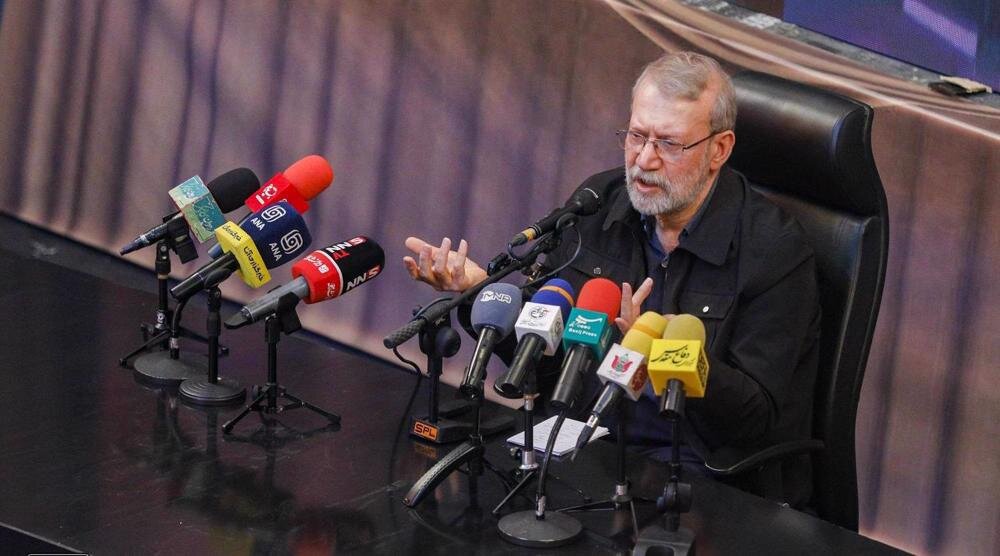
TEHRAN – The secretary of Iran’s Supreme National Security Council has rejected outright Western demands for the country to reduce the range of its missiles.
“Calls to reduce the range of missiles amounts to demand for submission and stripping the country of national security,” said Ali Larijani during a local event in Tehran on Thursday.
“The reduction of the range of missiles is tantamount to the undermining of the country’s most important defensive tool,” he said.
Iran has made tremendous breakthroughs in its missile industry over the past decades. The country has managed to develop a whole range of state-of-the-art missiles domestically.
Iran’s Armed Forces used locally-developed missiles to respond to the Israeli regime’s act of aggression against the country.
On June 13, Israel launched a blatant and unprovoked act of aggression against Iran, triggering a 12-day war that killed at least 1,064 people in the country, including military commanders, nuclear scientists, and ordinary civilians. The United States also entered the war by bombing three Iranian nuclear sites in a grave violation of international law.
In response, the Iranian Armed Forces targeted strategic sites across the occupied territories as well as the al-Udeid air base in Qatar, the largest American military base in West Asia.
During Israel’s 12-day aggression against Iran in June, the United States reportedly expended a significant portion – approximately a quarter – of its advanced THAAD missile interceptor supply. American forces fired over 100 THAADs, possibly as many as 150, to counter Iran’s barrage of ballistic missiles, U.S. media claims. The U.S. has deployed two of its seven THAAD systems to defend Israel in the conflict. This rapid expenditure of THAAD interceptors reportedly revealed a vulnerability in the U.S. missile defense capabilities and depleted a valuable resource amidst declining American public support for Israeli defense.
Despite the extensive efforts by the U.S., Israel, and a number of European and regional countries to intercept the Iranian missiles, Iran still managed to strike its targets, destroying important military and strategic sites across the occupied territories. It is believed that this unprecedented damage was what compelled Israel and Washington to ask for a ceasefire.
The last round of nuclear negotiations between Iran and the U.S. came to a halt when the war broke out. The U.S. now wants Iran to also negotiate the range of its missiles, which officials in Tehran say is a nonstarter. Larijani previously stated that Washington wants Iranian missiles to have a range of no more than 500km, meaning the country would be unable to retaliate against Israel if attacked again.
Elsewhere in his Thursday remarks, Larijani said external economic pressure will fail to erode Iran’s resilience. “The West imagines that with economic pressure it can reduce Iran’s resilience,” the security chief said, adding that “the nation of Iran, with resistance and faith, will pass through this stage as well.”
Larijani noted that if “we want national resistance to continue, we must stand united and speak with one voice,” emphasizing that “national security belongs to all people and defending it is a collective duty.”
Disclaimer : This story is auto aggregated by a computer programme and has not been created or edited by DOWNTHENEWS. Publisher: tehrantimes.com






